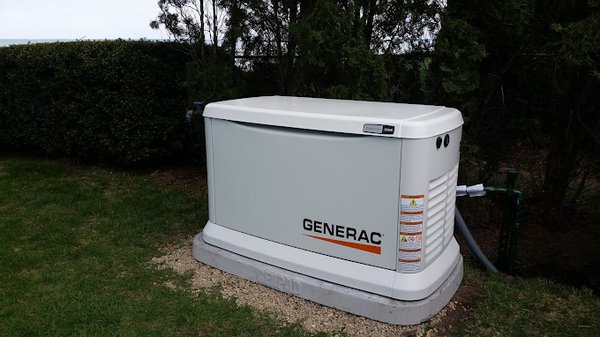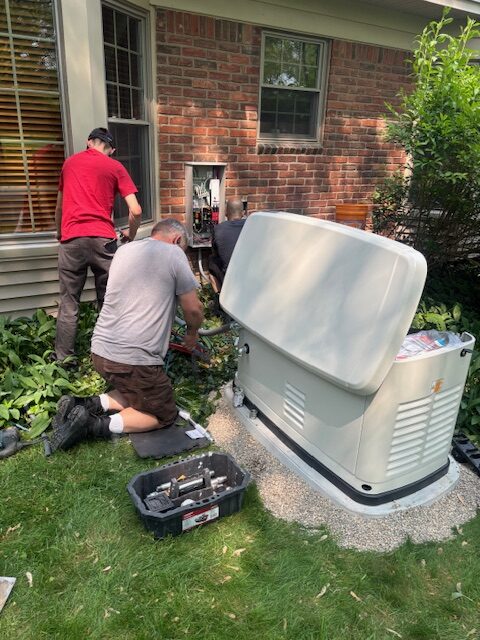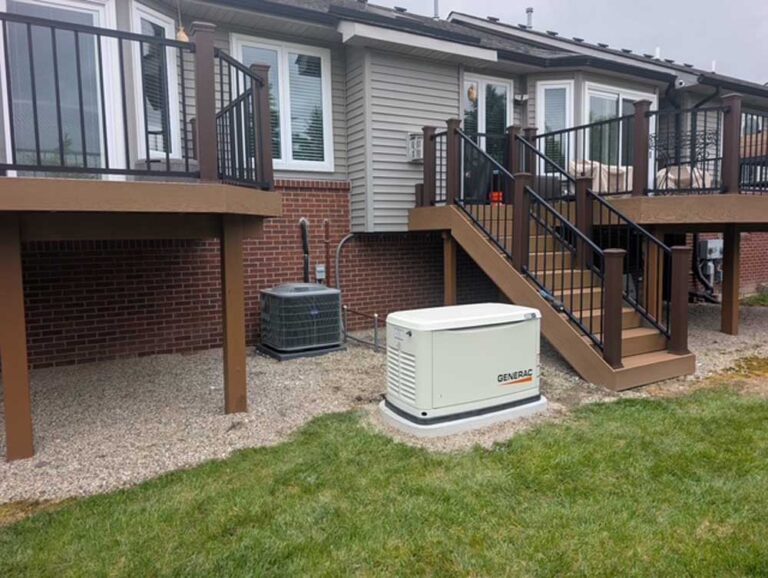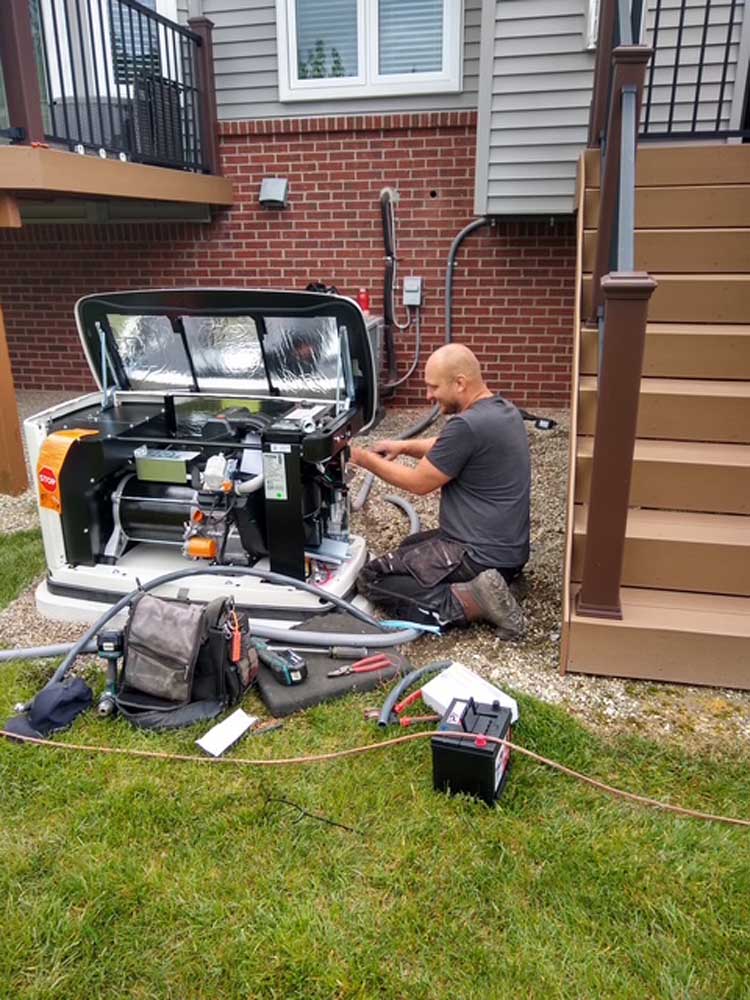
Purchasing a whole house generator is the best way to give yourself peace of mind about future power outages and natural disasters, no matter where you live in the country. Despite the obvious benefits of owning a generator, many homeowners are still hesitant to purchase one because they’re concerned about disruptions and the overall installation timeline. Hiring professional installers not only solves all of these issues but also ensures a safe installation that is code-compliant and provides long-term reliability. Here’s what you can expect when getting a whole house generator installed:
Every backup generator installation begins with a site visit and electrical load assessment. This evaluation helps the Estimators pair you with the right generator to meet your needs. It also gives you and the Estimators a chance to work out where to install the new equipment.
Generator size is based on your total electrical load, including the total wattage of all the appliances and systems you want to run during an outage, but it doesn’t stop there. Some appliances, such as refrigerators and air conditioners, require a lot of extra power to start up. A professional will take those peaks into account, providing you with a generator that runs smoothly and doesn’t become overloaded at any point.
Placement is usually up to the homeowner’s preferences, but this is one part of installation likely to be affected by zoning restrictions and local building codes. Your county or town may require a certain location for the generator or the installation of extra safety devices, such as multiple cut-off switches. Your estimators will handle all of these details and explain any recommendations they have regarding these local regulations.
There are a few steps you can take as a homeowner to prep the installation area:

The installation process for the generator when it arrives goes a little longer because the installers must check your electrical system, install extensive wiring, connect the new fuel lines, and put the generator in place. The process can take 8 hours or more.
The installers will mostly work outside but will need to come in at some point to finish connecting to the home’s main power supply or breaker box. Indoor work should only take an hour or two, depending on the system’s requirements. Most installations will require the power to the home to be shut off for a short amount of time, usually for just a few hours, so they can safely install the transfer switch and necessary wiring.
The team will clearly communicate what they’ll need to do for each stage of installation and can work around your schedule to some extent. They’ll also cover and flag the work they’re doing, so you won’t have to worry about safety risks due to exposed wiring or fuel lines.
After all the wiring, switches, and control units are installed, your installers will connect the fuel lines and test the system. The installers will run the generator first to verify it’s operating, then use a manual or automatic switch to move your home’s load onto that power source. This verifies it will handle the load and switch properly when a power outage happens. If there are any issues, the installers can fix them before you face them during a real outage situation.
You’ll also get a walkthrough to learn about the system and how to operate it, along with a chance to ask any questions you still have, as well as a complete set of manuals and guides from the manufacturer to keep you confident about your new home generator.
The general timeline for a home generator installation can vary depending on delays in shipping the equipment or securing the permits. In general, the timeline is as follows:
Shipping and sourcing issues can slow down the process, but the installation team can pivot to use more readily available equipment if time is an issue for you. Demand in your area and workload at your municipal offices will also determine how long the permitting process takes. Aside from those issues, only bad weather is likely to delay or interrupt the installation.
Every home backup generator system relies on a fuel source and involves potentially dangerous electrical connections. Your installers will safely connect the natural gas or other fuel lines and ensure there are no risks to your home or health. There’s no need to worry that you’ve missed an essential cut-off switch or could damage your appliances when you leave the wiring to a licensed electrician. In-house professionals will also check that everything is done safely and to code. This results in a generator system that performs every time you need it and requires as little maintenance as possible over its lifespan.
Budget Electric is your partner for whole home generator installations. With our commitment to communication and collaboration, you’ll feel supported and confident throughout the entire project. Contact us today to get a free estimate or schedule a generator installation.


